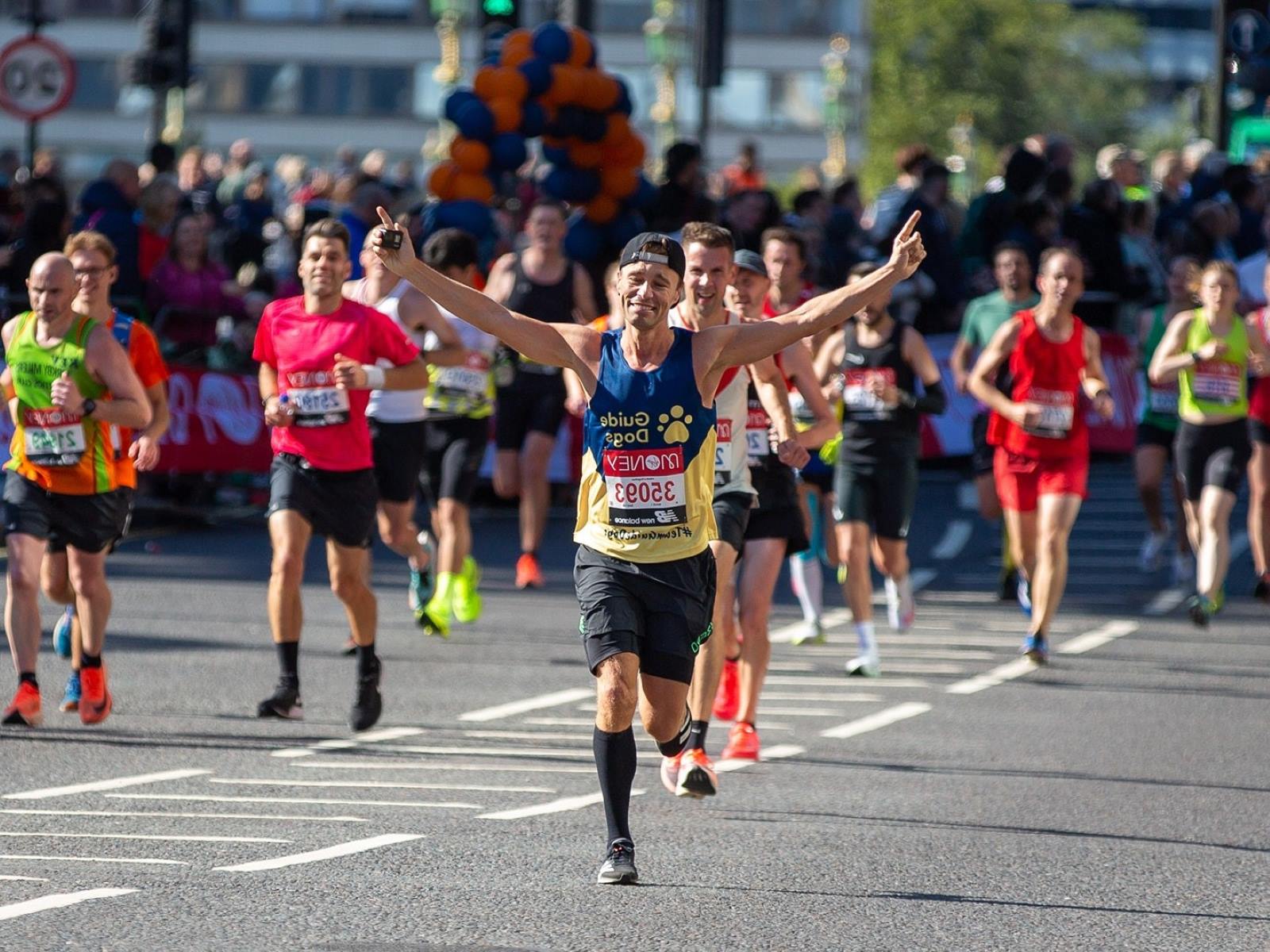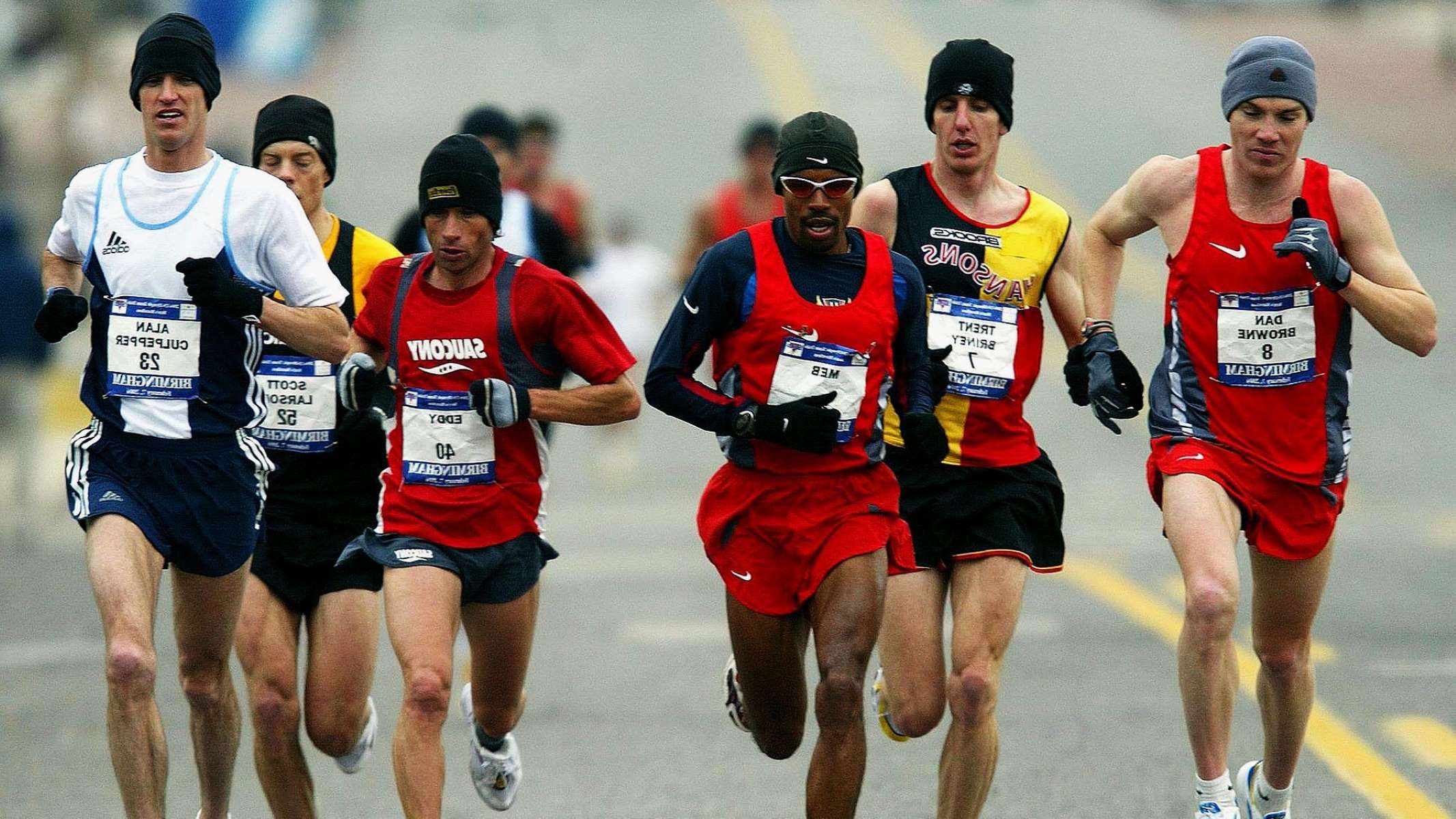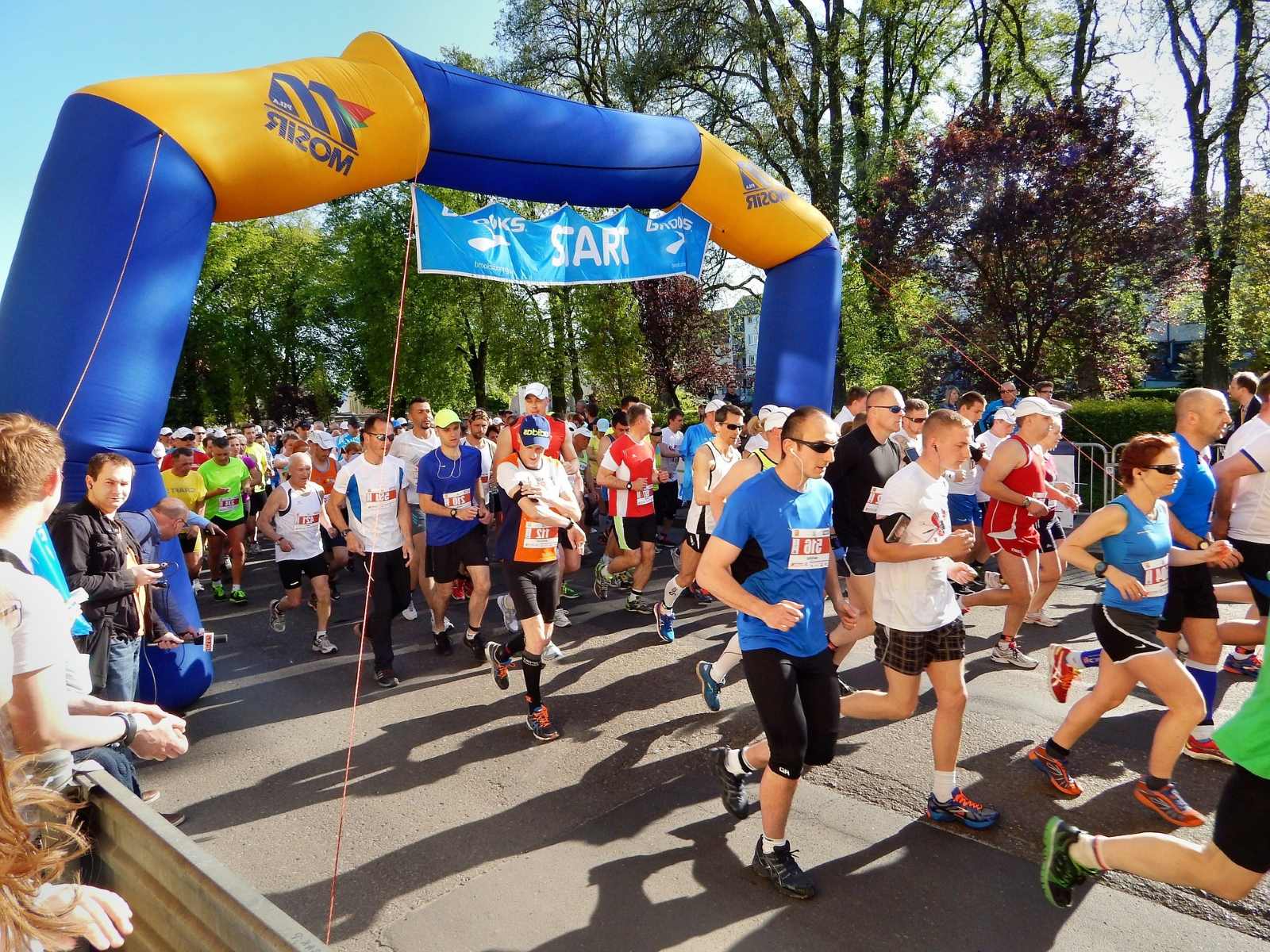Home>Races & Events>Marathon Guide>The Art Of Completing A Marathon


Marathon Guide
The Art Of Completing A Marathon
Published: February 22, 2024
Discover the ultimate marathon guide and learn the art of completing a marathon with expert tips, training plans, and race day strategies. Master the marathon journey today!
(Many of the links in this article redirect to a specific reviewed product. Your purchase of these products through affiliate links helps to generate commission for Therunningadvisor.com, at no extra cost. Learn more)
Table of Contents
Preparing Your Mind and Body
Preparing for a marathon is not just about physical training; it also involves mental preparation. The journey to completing a marathon requires a holistic approach that encompasses both the body and the mind. Here are some essential tips for preparing your mind and body for the marathon:
Mental Preparation
-
Visualize Success: Mental imagery can be a powerful tool in preparing for a marathon. Take time to visualize yourself crossing the finish line, feeling strong and accomplished. This positive visualization can help build confidence and reduce anxiety.
-
Stay Positive: Maintaining a positive mindset is crucial during the training phase. Embrace a can-do attitude and focus on the progress you are making. Surround yourself with supportive individuals who can uplift your spirits and keep you motivated.
-
Manage Stress: Balancing training with other life commitments can be challenging. Practice stress-reducing techniques such as meditation, deep breathing, or yoga to keep your mind calm and focused.
Physical Preparation
-
Build Endurance: Gradually increase your mileage during training to build endurance. Incorporate long runs into your schedule to prepare your body for the distance of a marathon. Cross-training with activities like cycling or swimming can also help improve overall endurance.
-
Strength Training: Incorporate strength training exercises into your routine to build muscle strength and prevent injuries. Focus on exercises that target the legs, core, and upper body to improve overall stability and power.
-
Rest and Recovery: Adequate rest is essential for allowing your body to recover and adapt to the demands of training. Ensure that you prioritize sleep and incorporate rest days into your schedule to prevent burnout and reduce the risk of overuse injuries.
By focusing on both mental and physical preparation, you can set yourself up for success in completing a marathon. Remember that every step of the journey, from the initial training sessions to the final strides toward the finish line, contributes to the overall achievement. Embrace the process, stay committed, and trust in your ability to conquer the marathon challenge.
Setting Realistic Goals
Setting realistic goals is a fundamental aspect of preparing for a marathon. It involves carefully evaluating your current fitness level, understanding the demands of the marathon distance, and establishing achievable objectives that align with your capabilities. Here's a detailed look at the importance of setting realistic goals and how to approach this crucial aspect of marathon preparation.
Understanding Your Fitness Level
Before setting goals for your marathon, it's essential to assess your current fitness level. Consider factors such as your running experience, recent race performances, and overall physical condition. This self-assessment provides a realistic baseline from which to gauge your capabilities and determine the level of improvement needed to reach your marathon goals.
Embracing Incremental Progress
When setting goals for a marathon, it's vital to embrace the concept of incremental progress. Instead of aiming for an ambitious time or pace right from the start, consider setting progressive milestones. For instance, focus on completing a certain distance within a specific time frame during training, gradually increasing the pace and distance as your fitness improves. This approach allows for steady advancement and minimizes the risk of setting unrealistic expectations.
Considering External Factors
In addition to personal fitness, external factors such as weather conditions, course terrain, and race-day logistics can significantly impact marathon performance. When setting goals, it's crucial to account for these variables and adjust your expectations accordingly. By acknowledging the influence of external factors, you can set more realistic and adaptable goals that accommodate unforeseen challenges.
Aligning Goals with Training
Setting realistic goals involves aligning them with your training plan. Consider how your training schedule can support your goals, whether it's through specific workouts, long runs, or recovery periods. By integrating your goals into your training regimen, you can tailor your workouts to address areas that need improvement and track your progress effectively.
Celebrating Achievements Along the Way
While the ultimate goal may be completing the marathon, it's important to celebrate achievements along the way. Recognize and appreciate the milestones you reach during training, such as surpassing a personal distance record or achieving a faster pace. These smaller victories contribute to your overall progress and provide motivation as you work toward your ultimate marathon goal.
In summary, setting realistic goals for a marathon involves a comprehensive assessment of your current fitness level, embracing incremental progress, considering external factors, aligning goals with training, and celebrating achievements along the way. By approaching goal-setting with a balanced and realistic mindset, you can enhance your marathon preparation and increase the likelihood of a successful and fulfilling race day experience.
Training for Endurance
Training for endurance is a cornerstone of marathon preparation, as it equips runners with the physical and mental stamina needed to conquer the 26.2-mile distance. Endurance training involves a strategic approach to gradually build the body's capacity to sustain prolonged physical exertion. Here's an in-depth exploration of the key components and strategies for effective endurance training:
Gradual Mileage Build-Up
Endurance training revolves around a progressive increase in mileage to condition the body for the demands of a marathon. The training plan typically incorporates long runs, which serve as the foundation for building endurance. Beginning with moderate distances and gradually extending the mileage over several weeks allows the body to adapt and strengthen, preparing it for the rigors of marathon running.
Long Runs and Pace Variation
Long runs are pivotal in developing endurance, as they simulate the duration of a marathon and provide an opportunity to refine pacing strategies. Integrating pace variation within long runs, such as incorporating segments at marathon goal pace, helps runners acclimate to different intensities and sustain effort over extended periods. This approach enhances aerobic capacity and mental resilience, essential for enduring the marathon distance.
Cross-Training and Strength Work
Supplementing running with cross-training activities such as cycling, swimming, or elliptical workouts can bolster endurance while reducing the risk of overuse injuries. Additionally, incorporating strength training exercises targeting major muscle groups enhances overall muscular endurance and stability, contributing to improved running economy and injury prevention.
Tempo Runs and Interval Training
Tempo runs, characterized by sustained efforts at a comfortably challenging pace, and interval training, involving alternating periods of high-intensity running with recovery intervals, are valuable tools for enhancing endurance and speed. These structured workouts elevate cardiovascular fitness, improve lactate threshold, and cultivate mental fortitude, all of which are integral to marathon success.
Rest and Recovery
Balancing rigorous training with adequate rest and recovery is paramount in endurance development. Scheduled rest days and easy recovery runs allow the body to repair and adapt, optimizing the benefits of training while mitigating the risk of overtraining and burnout. Prioritizing sleep, proper nutrition, and active recovery measures is essential for sustaining long-term endurance gains.
In essence, training for endurance encompasses a multifaceted approach that integrates progressive mileage build-up, long runs with pace variation, cross-training and strength work, tempo runs and interval training, and prioritized rest and recovery. By diligently adhering to a well-rounded endurance training regimen, runners can fortify their physical and mental resilience, ultimately enhancing their capacity to conquer the marathon distance with confidence and determination.
Nutrition and Hydration
Nutrition and hydration play a pivotal role in the preparation and execution of a marathon. Proper fueling and hydration strategies are essential for sustaining energy levels, optimizing performance, and supporting overall well-being throughout the demanding 26.2-mile journey. Here's an in-depth exploration of the key considerations and best practices for effective nutrition and hydration in marathon training and racing.
Pre-Race Nutrition
In the days leading up to the marathon, focus on consuming a balanced diet rich in complex carbohydrates, lean proteins, healthy fats, and a variety of vitamins and minerals. Carbohydrate loading, a strategy aimed at maximizing glycogen stores, is commonly practiced in the days preceding the race to enhance endurance and delay fatigue. Incorporate whole grains, fruits, vegetables, and legumes into your meals to ensure adequate carbohydrate intake.
Race-Day Fueling
On race day, aim to consume a pre-race meal approximately 2-3 hours before the start, consisting of easily digestible carbohydrates and a moderate amount of protein. This meal should provide sustained energy without causing gastrointestinal discomfort. Additionally, consider consuming a small snack, such as a banana or energy bar, closer to the race start to maintain blood sugar levels and top off glycogen stores.
Hydration Strategies
Proper hydration is critical for maintaining fluid balance and supporting physiological functions during the marathon. Begin the race well-hydrated by consuming fluids in the hours leading up to the start. During the race, aim to drink water or sports drinks at regular intervals to replace fluid losses and maintain hydration. Be mindful of the environmental conditions and adjust your fluid intake accordingly to prevent dehydration or overhydration.
In-Race Fueling
During the marathon, fueling with easily digestible carbohydrates is essential for sustaining energy levels and preventing the depletion of glycogen stores. Utilize aid stations to replenish fluids and consume energy gels, chews, or other portable fuel sources at regular intervals. Practice your fueling strategy during training to determine the products and timing that work best for your individual needs.
Post-Race Recovery
Following the marathon, prioritize post-race recovery by consuming a combination of carbohydrates and protein to facilitate glycogen replenishment and muscle repair. Hydrate with electrolyte-rich fluids to restore mineral balance and aid in recovery. Additionally, consider incorporating anti-inflammatory foods and supplements to mitigate post-race muscle soreness and support the body's recovery process.
By integrating comprehensive nutrition and hydration practices into your marathon preparation and race-day execution, you can optimize your physical performance, enhance endurance, and mitigate the risk of fatigue and dehydration. Tailoring your fueling and hydration strategies to your individual needs and practicing them during training will contribute to a successful and fulfilling marathon experience.
Read more: The Complete Guide To Running And Hydration
Mental Strategies for Race Day
Race day presents a unique set of challenges that extend beyond physical exertion. The mental aspect of marathon running plays a pivotal role in determining performance and overall experience. Implementing effective mental strategies can bolster resilience, enhance focus, and cultivate a positive mindset, ultimately contributing to a successful marathon journey. Here's a comprehensive exploration of key mental strategies for race day:
Visualization and Positive Affirmations
Engaging in visualization exercises prior to the race can help alleviate pre-race jitters and instill confidence. Visualize yourself navigating the course with strength and determination, overcoming any obstacles, and crossing the finish line triumphantly. Additionally, incorporating positive affirmations, such as "I am strong," "I am capable," and "I can conquer this challenge," can reinforce a resilient and optimistic mindset.
Mindful Breathing and Relaxation Techniques
Practicing mindful breathing and relaxation techniques can mitigate race-day anxiety and promote a calm and focused mental state. Utilize deep breathing exercises to center yourself, release tension, and regulate emotions. Incorporating progressive muscle relaxation or meditation can further enhance mental clarity and composure amidst the excitement and anticipation of race day.
Focus on Process Goals
Redirecting focus from outcome-oriented goals to process goals can alleviate performance pressure and enhance present-moment awareness. Instead of fixating solely on finishing time or placement, concentrate on executing your race plan, maintaining a steady pace, and adhering to your fueling and hydration strategy. Embracing the process fosters a sense of control and empowers you to navigate the race with intention and mindfulness.
Read more: The Art Of Managing Chronic Inflammation
Embracing Adversity and Flexibility
Mentally preparing for unexpected challenges and embracing adaptability is crucial for navigating the dynamic nature of a marathon. Anticipate potential setbacks such as inclement weather, course variations, or unforeseen physical discomfort. Cultivate a flexible mindset that allows for adjustments in pacing, fueling, and mental approach, empowering you to respond effectively to changing race conditions.
Gratitude and Positive Self-Talk
Cultivating a mindset of gratitude and employing positive self-talk can bolster mental resilience and fortitude. Express gratitude for the opportunity to participate in the marathon, the support of fellow runners, volunteers, and spectators, and the strength of your body and mind. Engage in positive self-talk to counter negative thoughts and self-doubt, reinforcing confidence and determination throughout the race.
Resilience and Adaptability
Mental resilience and adaptability are essential attributes for navigating the ebb and flow of a marathon. Embrace the inevitable fluctuations in energy levels and emotions, and draw upon your mental reserves to persevere through challenging moments. Cultivate a resilient mindset that embraces discomfort as an inherent part of the marathon experience, reinforcing your capacity to endure and thrive.
By integrating these mental strategies into your race-day approach, you can fortify your mental resilience, enhance focus, and cultivate a positive and adaptive mindset. Embracing the mental dimension of marathon running empowers you to navigate the race with confidence, determination, and a profound sense of fulfillment.
Crossing the Finish Line: Celebrating Your Achievement
Crossing the finish line of a marathon is a momentous occasion that signifies the culmination of months of dedicated training, unwavering determination, and sheer perseverance. As you approach the final stretch of the 26.2-mile journey, a surge of emotions and a profound sense of accomplishment envelop you, underscoring the significance of this monumental achievement.
The act of crossing the finish line transcends mere physicality; it embodies a profound testament to the resilience of the human spirit and the unwavering pursuit of a formidable goal. As you take those last strides, the cacophony of cheers from spectators, the reverberating applause, and the collective energy of fellow runners converge to create an electrifying atmosphere, propelling you toward the culmination of your marathon odyssey.
Amidst the exhilaration and fatigue, the moment of crossing the finish line serves as a poignant reminder of your unwavering commitment, unyielding perseverance, and unrelenting resolve. Each step taken in the face of physical and mental exertion symbolizes a triumph over self-imposed limitations and a testament to the indomitable human spirit.
The act of celebrating your achievement extends beyond the physical act of crossing the finish line; it encompasses a profound sense of gratitude, self-reflection, and reverence for the journey undertaken. As you bask in the euphoria of this monumental milestone, take a moment to reflect on the arduous yet transformative path that led you to this triumphant juncture.
Embrace the camaraderie of fellow runners, revel in the unwavering support of spectators, and acknowledge the invaluable contributions of coaches, mentors, and loved ones who stood steadfast by your side throughout your marathon preparation. The collective energy and shared triumphs of the running community infuse the moment with a profound sense of unity and camaraderie, underscoring the transformative power of the marathon experience.
In the aftermath of crossing the finish line, allow yourself to revel in the sheer magnitude of your accomplishment. Whether it's a personal best, a debut marathon finish, or a testament to resilience in the face of adversity, your achievement warrants celebration and reverence. Embrace the elation, the tears of joy, and the overwhelming sense of fulfillment that accompanies this monumental feat.
As you embark on the post-race recovery and reflection, carry the spirit of your marathon achievement with you as a source of inspiration and empowerment. The lessons learned, the resilience forged, and the unwavering determination exhibited throughout the marathon journey serve as enduring testaments to your capacity for greatness and your unyielding pursuit of excellence.
In essence, crossing the finish line of a marathon is a transformative and deeply personal experience that warrants profound celebration and reverence. Embrace the magnitude of your achievement, cherish the collective energy of the running community, and carry the spirit of your marathon triumph as a beacon of inspiration and empowerment in all your future endeavors.










